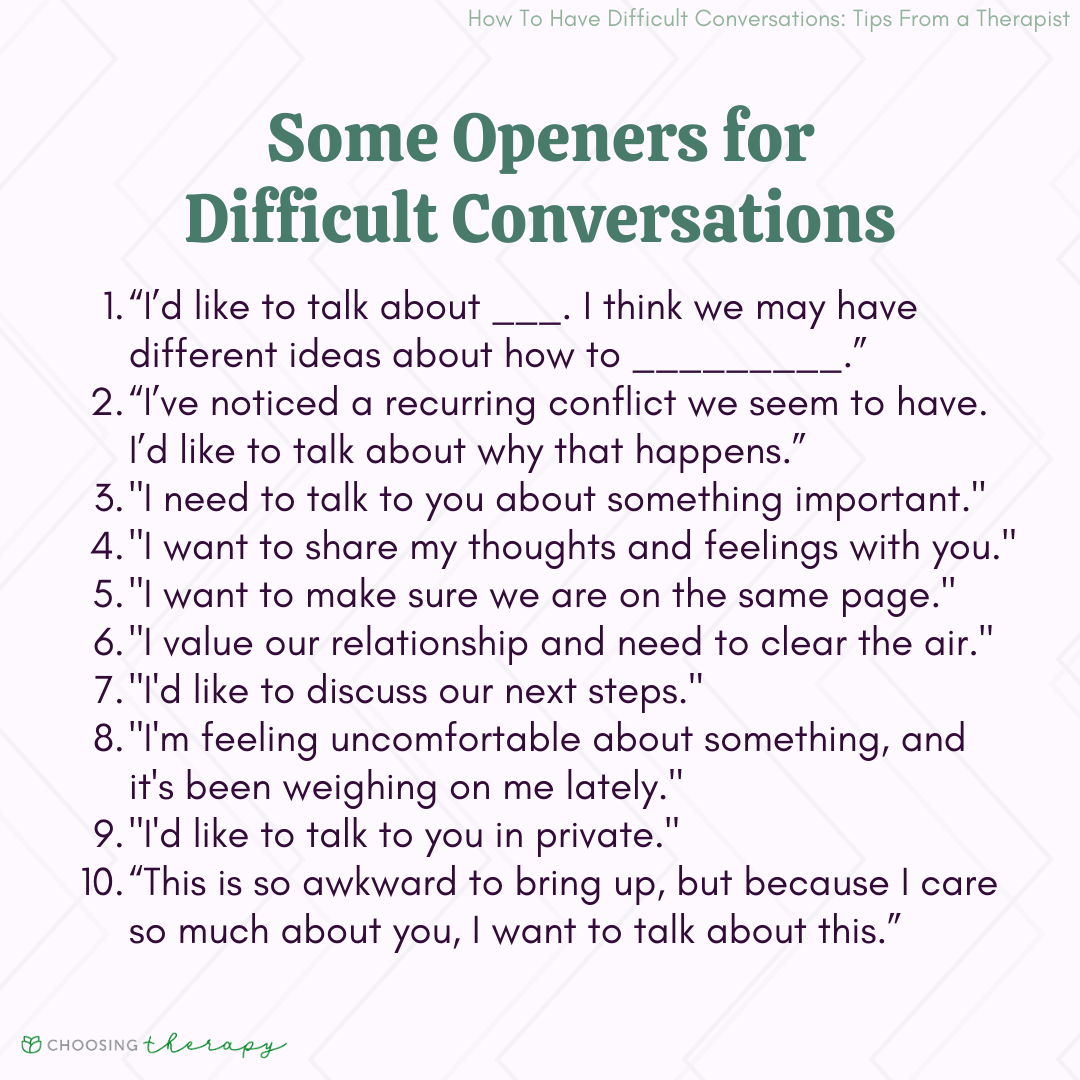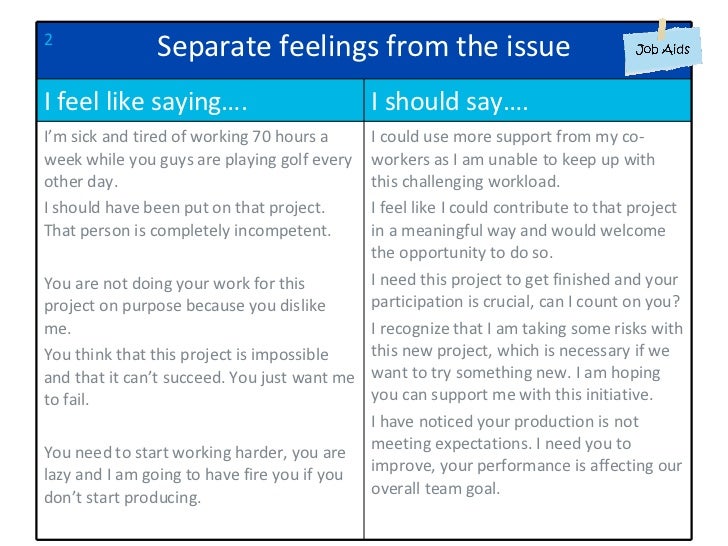Examples Of Difficult Conversations

Navigating the complexities of human interaction often requires engaging in difficult conversations. These discussions, characterized by high stakes, differing opinions, and strong emotions, are unavoidable in both personal and professional spheres.
This article will examine various examples of these challenging dialogues, exploring the nuances of effective communication and potential consequences of mishandling delicate situations.
Understanding Difficult Conversations
A difficult conversation, at its core, involves a situation where individuals anticipate discomfort, resistance, or negative reactions. These scenarios frequently arise from disagreements, unmet expectations, or the need to deliver unwelcome news.
The Harvard Business Review consistently highlights the importance of preparing for these conversations. Failure to adequately prepare can result in escalated conflict, damaged relationships, and unproductive outcomes.
Examples in the Workplace
Performance reviews are a common setting for difficult conversations. Managers often face the challenge of providing constructive criticism to employees who are underperforming or struggling to meet expectations.
According to a 2023 survey by Gallup, only 26% of employees strongly agree that the feedback they receive helps them do better work. This suggests a significant need for improved communication strategies during performance evaluations.
Addressing conflicts between colleagues represents another frequent challenge. These situations often involve mediating disputes, facilitating open dialogue, and finding mutually acceptable solutions. The Society for Human Resource Management (SHRM) offers resources and training to help managers navigate these interpersonal issues.
Restructuring or downsizing inevitably necessitates difficult conversations regarding job security and potential layoffs. These discussions require empathy, transparency, and a clear explanation of the reasons behind the decisions.
Examples in Personal Relationships
Discussing finances with a partner can be a minefield of potential conflict. Differing spending habits, financial goals, and attitudes toward debt can lead to heated arguments.
Experian reports that financial issues are a leading cause of stress in relationships. Open and honest communication about money is crucial for maintaining a healthy partnership.
Addressing infidelity or breaches of trust is another incredibly difficult scenario. These conversations often involve intense emotions, accusations, and the potential for irreparable damage to the relationship.
Parenting presents numerous opportunities for challenging conversations. Setting boundaries, addressing behavioral issues, and discussing sensitive topics such as sex, drugs, and alcohol require patience, understanding, and clear communication.
Key Strategies for Navigating Difficult Conversations
Numerous resources offer advice on handling challenging conversations effectively. Active listening, empathy, and a focus on finding common ground are frequently cited as essential skills.
Establishing a safe and respectful environment is crucial. This involves creating a space where individuals feel comfortable expressing their thoughts and feelings without fear of judgment or retaliation.
Focusing on facts rather than emotions can help de-escalate tensions. Clearly articulating the issue at hand and avoiding personal attacks are important strategies.
Seeking professional mediation or counseling can be beneficial in particularly complex or emotionally charged situations. Trained professionals can provide guidance, facilitate communication, and help parties find mutually agreeable solutions.
Learning to manage one's own emotions is also critical. Recognizing and addressing personal biases and triggers can prevent unnecessary escalation and promote more productive dialogue.
Acknowledging that difficult conversations are inevitable is the first step toward mastering them. By understanding the common scenarios, employing effective communication strategies, and seeking support when needed, individuals can navigate these challenges with greater confidence and achieve more positive outcomes.

















